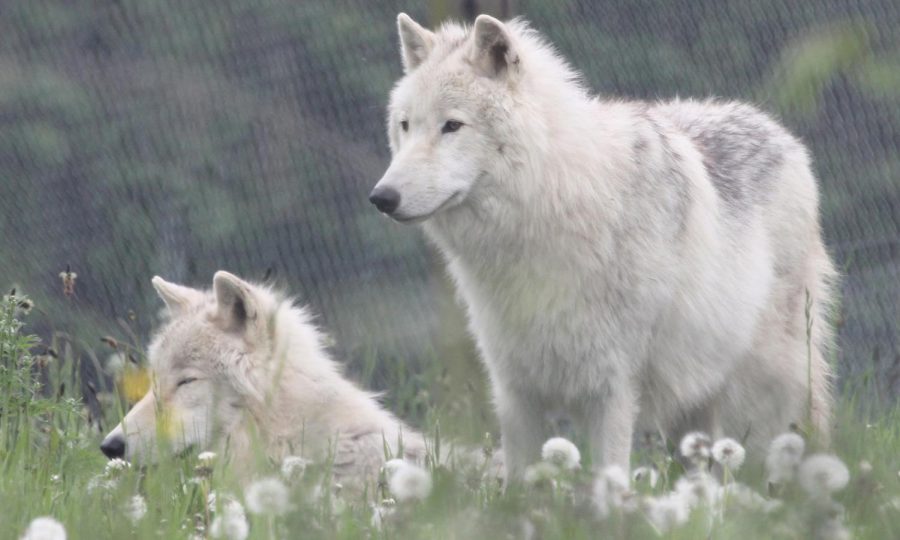Researcher criticizes WSU at Profanity Peak film screening
Wielgus joined environmental organizations to discuss state wolf management policy
Wielgus said he found the Profanity Peak wolf den through tracks and other evidence.
January 24, 2018
A WSU researcher, criticized for his comments and research surrounding the killing of Northeastern Washington wolves, answered questions Monday night following a film explaining the conflict.
The film depicted the Washington Department of Fish and Wildlife’s killing of wolves after they preyed on a cattle allowed to graze on federal forestland within just 200 yards of the pack’s den, said Robert Wielgus, an associate professor and director of WSU’s Large Carnivore Conservation Lab.
Predator Defense, a national conservation group, produced the film and hosted it along with other state and local organizations.
Brooks Fahy, director of Predator Defense, said he hopes the film will cause public outrage about the issue and get people involved.
“Predators are an easy scapegoat,” Fahy, who directed and produced the film, said, “and they can’t speak back.”
Wielgus said the den was easy to find because of tracks and other evidence, and that even after the wolves started killing cattle, the rancher, Len McIrvin, did nothing to avoid further predation.
“To not know where the den sites are you really would have to be dumb, deaf and blind,” he said.
Coleman said these problems arise in nearly every state that has a wolf population, and in the film, they tried to be as accurate as possible when presenting the facts.
“We’re trying to bring about change,” he said. “This was a 30-minute video, but we put in thousands of hours of work.”
Robert Schwenne, a rancher from Genesee, Idaho, said he doesn’t have a problem with how wolves interact with cattle. He said his problem with wolves is that they make the rest of the animals go into hiding because they are such vicious predators.
“My heartburn with the wolves is not what they do to the cattle,” he said, “It’s what they do to everything else.”
Wielgus responded by saying that this is natural.
“For the most part, the environment determines the number of prey,” he said, “and that determines the number of predators, not the other way around.”
Wielgus said this is an era of alternate facts, adding that if someone doesn’t like the facts, they find their own. If people would stick to scientific facts, he said, then the solutions to many problems would be obvious.
Wielgus said he found that placing cattle at least half a mile from a den resulted in no predation from wolves. When he told The Seattle Times that the rancher placed his cattle near the den site, WSU disavowed his comments and the Washington Department of Fish and Wildlife tried to fire him for inappropriate use of legislative funds.
Wielgus said that until the university clears his name, his career is over. Wielgus said his lab is still shut down and he has not done any research for two years.
“Science seems to be going down the drain these days,” he said. “At least around here.”
An earlier version of this story incorrectly attributed Brooks Fahy’s quotes to someone else.






















